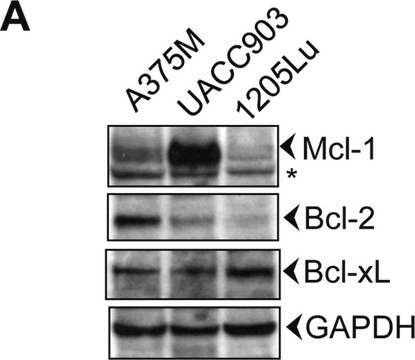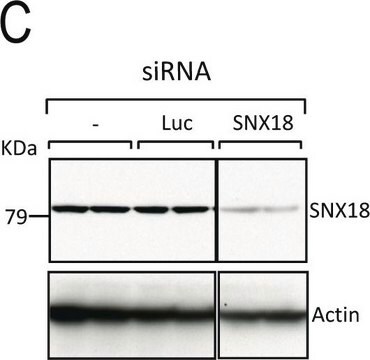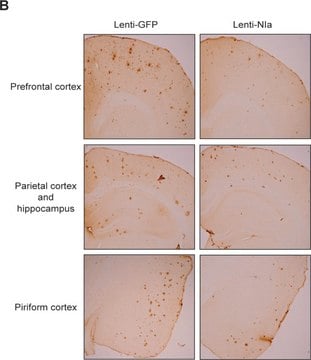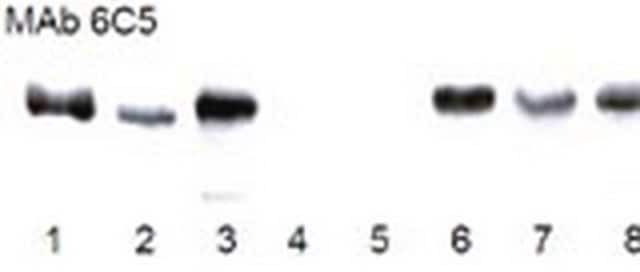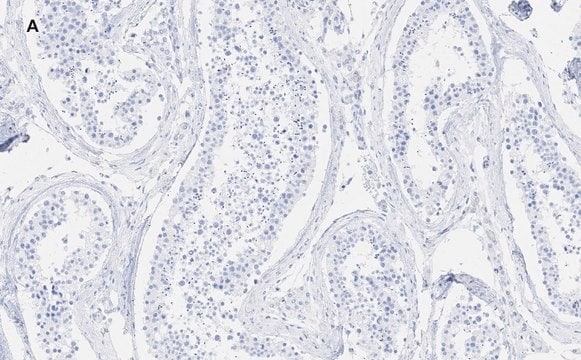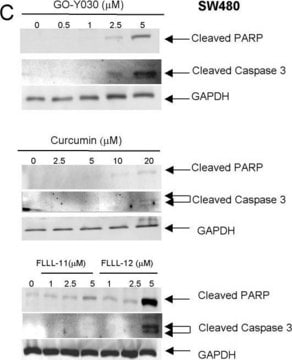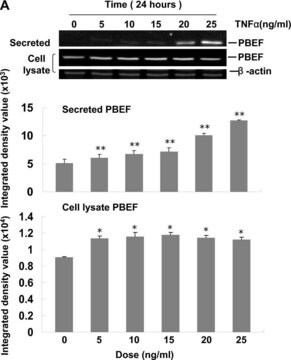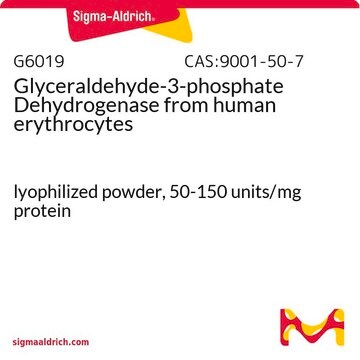G9295
Monoclonal Anti-GAPDH−Peroxidase antibody produced in mouse
clone GAPDH-71.1, purified immunoglobulin, buffered aqueous solution
Synonym(s):
Anti-G3PD, Anti-G3PDH, Anti-Glyceraldehyde-3-phosphate Dehydrogenase
About This Item
Recommended Products
biological source
mouse
Quality Level
conjugate
peroxidase conjugate
antibody form
purified immunoglobulin
antibody product type
primary antibodies
clone
GAPDH-71.1, monoclonal
form
buffered aqueous solution
mol wt
antigen ~37 kDa
species reactivity
rabbit, canine, rat, hamster, monkey, mouse, turkey, bovine, mink, human, chicken
should not react with
prokaryotes
technique(s)
western blot: 1:35,000-1:70,000 using A431 total cell extract
isotype
IgM
UniProt accession no.
application(s)
research pathology
shipped in
dry ice
storage temp.
−20°C
target post-translational modification
unmodified
Gene Information
human ... GAPDH(2597)
mouse ... Gapdh(14433)
rat ... Gapdh(24383)
General description
Specificity
Immunogen
Application
- immunoblotting
- enzyme linked immunosorbent assay (ELISA)
- immunocytochemistry
Biochem/physiol Actions
Physical form
Disclaimer
Not finding the right product?
Try our Product Selector Tool.
Signal Word
Danger
Hazard Statements
Precautionary Statements
Hazard Classifications
Resp. Sens. 1 - Skin Sens. 1
Storage Class Code
12 - Non Combustible Liquids
WGK
WGK 2
Flash Point(F)
Not applicable
Flash Point(C)
Not applicable
Personal Protective Equipment
Choose from one of the most recent versions:
Certificates of Analysis (COA)
Don't see the Right Version?
If you require a particular version, you can look up a specific certificate by the Lot or Batch number.
Already Own This Product?
Find documentation for the products that you have recently purchased in the Document Library.
Customers Also Viewed
Our team of scientists has experience in all areas of research including Life Science, Material Science, Chemical Synthesis, Chromatography, Analytical and many others.
Contact Technical Service